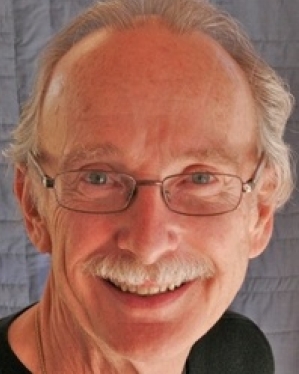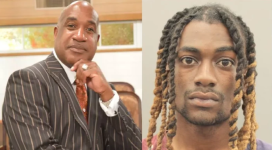Adam, the Bible's first man, established control over nature by giving names to things per Genesis 2:19, so there must have been a time during which God had no name among humans, reasons William Morrow, a Florida-based marriage and family therapist and author of "The Rain Doesn't Fall Straight Down: A Positive Slant on Marriage Relationships."
The Genesis story nicely portrays the power of the naming process, writes Morrow, who points out that Hebrew texts indicate that naming God, himself, was a more complicated thing, even a forbidden thing. "The concept seems obvious to me: we humans don't get to have power over God, just because we think we can name Him/Her."
Better God should remain nameless, said Morrow, if humans want to put things in proper perspective.
"Of course, every religion has its own name for God: Yahweh, Allah. So I am thinking that there must have been a time when God didn't have a name, which probably made it simpler," stated the therapist who also is an ordained Presbyterian clergyman.

"No religious wars, no theological debates. It would have been easier to focus on the spiritual connection to whatever force in the universe we just knew was there. Too bad we can't turn the clock of history back to the earliest human experience of the Great Mystery, where thoughts were not well-formed, and there were just bare-naked experiences," writes Morrow.
He shared a view about the psychology of religion: "Before God had a name, there was a universal yearning for the meaning of all that could be experienced. It's like developmental psychology/anthropology thrown back to its roots."
There were probably unnamed and unfocused experiences of wonder before God had a name, said Morrow, like when first human beings looked at the heavens on a starry night. "If neuropsychology had been there with an MRI of the brains of first man/first woman, things would have lit up brilliantly in the amygdale, while they were looking at the Milky Way. I am going to call that a truly spiritual experience; one that could bring any of us to tears."
Before God had a name, Morrow said there were probably some profound inspirations about how it was to properly live together in community, while coping with the darker side of human nature. "Sort of like the Ten Commandments, but maybe what came before them."
Before God had a name, there were new bright ideas, said Morrow, that only appeared to come from nowhere, but were actually a kind of glimmer of God, as a benevolent, loving force.
Even while some are observing the Christian season of Lent, Morrow said there seems to be an increased secularization of people's lives, so that there are more Americans dropping out of their religious affiliations. "Are we losing the spiritual dimension of life because of a 'modern' trend toward believing in only those things which we can prove with the five senses?" asks the therapist who holds a doctorate's degree in pastoral psychology and a master's degree from Yale University.
Karen Armstrong, writing in "The History of God: The 4,000-Year Quest of Judaism, Christianity and Islam," stated that the recent century of a secular outlook is a sharp, but brief departure, from the prior 14,000 years of civilization, where most people exercised their spiritual nature. Morrow obviously has been thinking about this concept. "Before God had a name" is a way of talking about what is basic to human existence, he said.
"I think we humans are hard-wired for searching for truths beyond the five senses. It's just part of who we are," stated Morrow.







